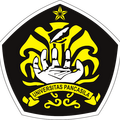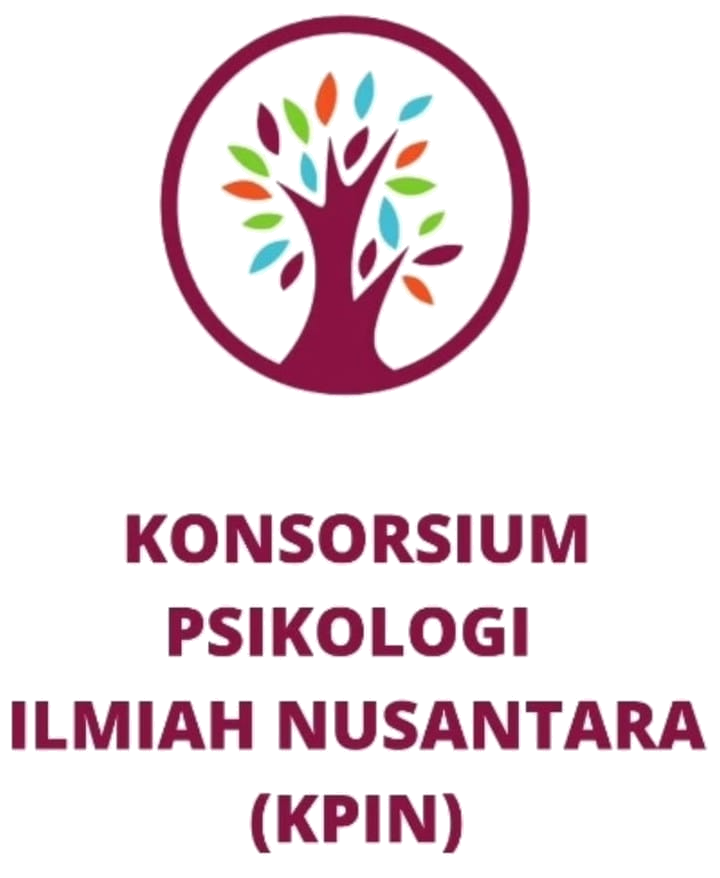Tekanan Orangtua, Perfeksionisme, dan Ketidakjujuran Akademik pada Pelajar di Jakarta
DOI:
https://doi.org/10.35814/mindset.v9i01.726Keywords:
academic dishonesty, parental pressure, perfectionism, studentsAbstract
Academic dishonesty is one phenomenon that has long happened in the world of education and is still interesting to study. It is known that academic dishonesty has increased dramatically each year in the past few decades. This study hypothesized that parental pressure and perfectionism are related to academic dishonesty. Data collection was carried out for 600 students in Jakarta between the ages of 14-18 years; using a questionnaire containing the Children-Adolescence Perfectionism Scale (CAPS), Perceived Parental Pressure Inventory (PPPI), and Academic Dishonesty Scale; all of these three were translated by researchers into Bahasa Indonesia before being used in research. Correlation test results showed that: (1) parental pressure is positively and significantly related to academic dishonesty, (2) perfectionism is positively and significantly related to academic dishonesty, and (3) parental pressure is positively and significantly related to perfectionism. This study suggested that parents should pay more attention to the child's condition and do not impose too high academic achievement standards so that children do not develop perfectionism and commit academic dishonesty to meet these standards.
References
Albrecht, W. S., Albrecht, C. O., Albrecht, C. C., & Zimbelman, M. F. (2012). Fraud examination (4th ed.). South-Western: Cengage Learning.
Anderman, E. M., & Murdock, T. B. (2006). The psychology of academic cheating. Dalam E. M. Anderman, & Tamera B Murdock, The psychology of academic cheating (1 ed., hal. 1-5). USA: Elsevier Inc.
Apriani, N., Sujana, E., & Sulindawati, I. G. (2017). Pengaruh pressure, opportunity, dan rationalization terhadap perilaku kecurangan akademik. e-Journal S1 AK Universitas Pendidikan Ganesha, 7(1).
Beiling, P. J., Israeli, A., Smith, J., & Antony, M. M. (2003). Making the grade: The behavioural consequences of Perfeksionisme in the classroom. Personality and Individual Differences, 35(1), 163-178.
Benner, A. D., Boyle, A. E., & Sadler, S. (2016). Parental involvement and adolescents' educational success: The roles of prior achievement and socioeconomic status. J Youth Adolescence. doi:10.1007/s10964-016-0431-4
Bjorklund, M., & Wenestam, C. G. (1999). Academic cheating: Frequency, methods, and causes. Dalam S. F. Davis, P. F. Drinan, & T. Bertram, Cheating in school: what we know and what we can do. WestSussex, U.K.: Wiley-Blackwell.
Burns, D. D. (1980). The perfectionist's script for self-defeat. Psychology Today, 14(6), 34-52. Diambil kembali dari http://www.ucdenver.edu/life/services/counseling-center/Documents/The-Perfectionists-Script-for-Self-Defeat.pdf
Cahyo, S. D., & Solicha. (2017). Faktor-faktor yang mempengaruhi perilaku menyontek pada pelajar dan mahasiswa di Jakarta. JP3I, 6(1), 87-96.
Cook, L. C. (2012). The influence of parent factors on child Perfeksionisme: A cross-sectional study. UNLV Theses, Dissertations, Professional Papers, and Capstones, 1551. Diambil kembali dari http://digitalscholarship.unlv.edu/thesesdissertations/1551
Costa, M., & Faria, L. (2017). Parenting and parental involvement in secondary school: Focus groups with adolescents' parents. Paidéia, 27(67), 28-36. doi:10.1590/1982-43272767201704
Costley, J. (2017). The instructional factors that lead to cheating in a Korean cyber university context. Interactive Technology and Smart Education. doi:10.1108/ITSE-02-2017-0019
Eastman, J. K., Iyer, R., & Reisenwitz, T. H. (2008). The impact of unethical reasoning on different types of Ketidakjujuran Akademik: an exploratory study. Journal of College Teaching & Learning, 5(12), 7-15.
Eriksson, L., & McGee, T. R. (2015). Ketidakjujuran Akademik amongst Australian criminal justice and policing university students: individual and contextual factors. International Journal for Educational Integrity, 1-15. doi:10.1007/s40979-015-0005-3
Ferguson, C., & Rodriguez, V. (2005). Engaging families at the secondary level: What schools can do to support family involvement. Family & Comunity Connection with Schools. Diambil kembali dari http://www.sedl.org/connections/resources/rb/rb3-Secondary.pdf
Flett, G. L., Hewitt, P. L., Besser, A., Su, C., Vaillancourt, T., Boucher, D., & Gale, O. (2016). The child-adolescent Perfeksionisme scale: Development, psychometric properties, and associations with stress, distress, and psychiatruc symptomps. Journal of Psychoeducational Assessment, 1-19. doi:10.1177/0734282916651381
Frost, R. O., Marten, P., Lahart, C., & Rosenblate, R. (1990). The dimensions of Perfeksionisme. Cognitive Therapy and Research, 14(5), 449-468.
Grolnick, W. S. (2003). The psychology of parental control. New Jersey: Lawrence Erlbaum Associates, Inc.
Hewitt, P. L., & Flett, G. L. (1991). Perfeksionisme in the self and social contexts: Conceptualization, assessment, and association with psychopathology. Journal of Personality and Social Psychology, 60(3), 456-470.
Hong, R. Y., Lee, S. S., Cheng, R. Y., Zhou, Y., Tsai, F. F., & Tan, S. H. (2016). Developmental trajectories of maladaptive Perfeksionisme in middle childhood. Journal of Personality, 1-14. doi:10.1111/jopy.12249
Irfan, S. M., & Hussain, N. (2014). Tekanan orangtua on student's attainment of high grades in Karachi based universities. Pakistan Business Review, 156-176.
Isnaningtyas, C. L. (2013). Perfeksionisme siswa program kelas akselerasi SMA Negeri 3 Yogyakarta. Journal Bimbingan Dan Konseling, 2(11).
Josephson Institute. (2009, 10 29). Josephson Institute of Ethics releases study on high school character and adult conduct. Diambil kembali dari http://josephsoninstitute.org/surveys/
Kahraman, S., & Bedük, Ş. B. (2016). Multiple intelligence and Perfeksionisme in middle school gifted students. Journal for the Education of Gifted Young Scientists, 4(2), 1-13. doi:http://dx.doi.org/10.17478/JEGYS.2016219257
Kessler International. (2017, February 6). Kessler International. Diambil kembali dari PR Newswire: http://www.prnewswire.com/news-releases/survey-shows-cheating-and-academic-dishonesty-prevalent-in-colleges-and-universities-300402014.html
Khairat, U., Maputra, Y., & Rahmi, F. (2014). Pengaruh prokrastinasi akademik terhadap perilaku menyontek pada siswi SMA di Pesantren X. Jurnal RAP UNP, 5(2), 192-203.
Kung, H. Y. (2016). The relationships among parents' socioeconomic status, parental involvement and academic achievement in Taiwanese middle school students. Journal of Education and Human Development, 5(4), 177-186. doi:10.15640/jehd.v5n4a17
Kusrieni, D. (2014). Hubungan efikasi diri dengan perilaku menyontek. Psikopedagogia, 3(2), 100-111.
Lestari, S., & Asyanti, S. (2015). Apakah siswa SMP berperilaku tidak jujur dalam situasi ulangan? The 2nd University Research Coloquium 2015.
Letha. (2013). A study of adolescents' perception of parental influence on academic activities. International Journal of Psychology and Counseling, 5(4), 66-71. doi:10.5897/IJPC12.031
Ma, Y., Siu, A., & Tse, W. S. (2018). The role of high parental expectations in adolescents' academic performance and depression in Hong Kong. Journal of Family Issues, 1-18. doi:10.1177/0192513X18755194
McCabe, D. L., & Trevino, L. K. (1997). Individual and contextual influences on Ketidakjujuran Akademik: A multicampus investigation. Research in Higher Education, 38(3), 379-396. doi:10.1023/A:1024954224675
McDevitt, T. M., & Ormrod, J. E. (2014). Child development and education (5th ed.). Harlow: Pearson Education.
Miller, A. D., Murdock, T. B., Anderman, E. M., & Poindexter, A. L. (2007). Who are all the cheaters? Characteristics of academically dishonest students. Dalam E. M. Anderman, & T. B. Murdock, Psychology of academic cheating (hal. 9-32). San Diego: Elsevier Academic Press.
Nathanson, C., Paulhus, D. L., & Williams, K. M. (2006). Predictors of a behavioral measure of scholastic cheating: Personality and competence but not demographics. Contemporary Educational Psychology, 31, 97-122. doi:10.1016/j.cedpsych.2005.03.001
Nursalam, Bani, S., & Munirah. (2013). Bentuk kecurangan akademik (academic cheating) mahasiswa PGMI fakultas tarbiyah dan keguruan UIN Alauddin Makassar. Lentera Pendidikan, 16(2).
Palar, P. M., Palandeng, H., & Kallo, V. D. (2015). Hubungan peran orangtua dengan prestasi belajar anak usia sekolah di SDN Inpres I Tumaratas kecamatan Langowan Barat. ejournal Keperawatan, 3(2).
Pope, D. C. (2001). Doing school: how we are creating a generation of stressed out, materialistic and miseducated students. London: Yale University Press.
Pradana, O. A., & Lestari, S. (2016). Dinamika psikologis perilaku curang dalam situasi praktek pada siswa sekolah menengah kejuruan. The 4th University Research Coloquium 2016, (hal. 110-121).
Ratna, P. T., & Widayat, I. W. (2012). Perfeksionisme pada remaja gifted. Insan, 14(3), 203-210.
Rujoiu, O., & Rujoiu, V. (2014). Ketidakjujuran Akademik and workplace dishonesty. Proceedings of the 8th International Management Conference, (hal. 928-938). Bucharest.
Rule, A. C., & Montgomery, S. E. (2013). Using cartoons to teach about Perfeksionisme: Supporting gifted students' social-emotional development. Gifted Child Today, 36(4), 255-262. doi:10.1177/1076217513497574
Saana, S. B., Ablordeppey, E., Mensah, N. J., & Karikari, T. K. (2016). Ketidakjujuran Akademik in higher education: students' perceptions and involvement in an African institution. BMC Research Notes, 9. doi:10:1186/s13104-016-2044-0
Sangma, Z. M., K, S., Akoijam, B. S., Maisnam, A. B., Visi, V., & Vanlalduhsaki. (2018). Perception of students on parental and teachers' pressure on their academic performance. IOSR Journal of Dental and Medical Sciences, 17(1), 67-75. doi:10.9790/0853-1701016875
Sarita, R. D. (2015). Academic cheating among students: Pressure of parents and teachers. International Journals of Applied Research, 1(10), 793-797.
Sedlakova, J., Mylek, V., Capkova, K., Prochazka, J., Vaculik, M., & Jezek, S. (2014). Parental control of child as a predictor of academic procrastination. Proceedings of the 11th International Conference on Efficiency and Responsibility in Education 2014 (hal. 694-702). Prague: Czech University of Life Sciences Prague. Diambil kembali dari https://is.muni.cz/repo/1185489/en/Sedlakova-Mylek-Capkova-Prochazka/Parental-control-of-child-as-a-predictor-of-academic-procrastination?lang=en
Silverman, L. K. (1999). Perfeksionisme. Gifted Education International, 13, 216-225.
Suara Pembaruan. (2013, 10 2). Survei UPI: Kecurangan UN libatkan guru dan kepala sekolah. Diambil kembali dari http://sp.beritasatu.com/home/survei-upi-kecurangan-un-libatkan-guru-dan-kepala-sekolah/42791
The Daily Nerbaskan. (2017, April 13). Ketidakjujuran Akademik on the rise, UNL manages to limit the problem. Diambil kembali dari http://www.dailynerbaskan.com/news/academi-dishonesty-on-the-rise-unl-manages-to-limit-the/article_d4f518fc-1ffe-11e7-8408-6b5fba5a076b.html
Zhao, L., Heyman, G. D., Chen, L., & Lee, K. (2017). Praising young children for being smart promotes cheating. Psychological Science, 28(12), 1868-1870. doi:10.1177/0956797617721529












